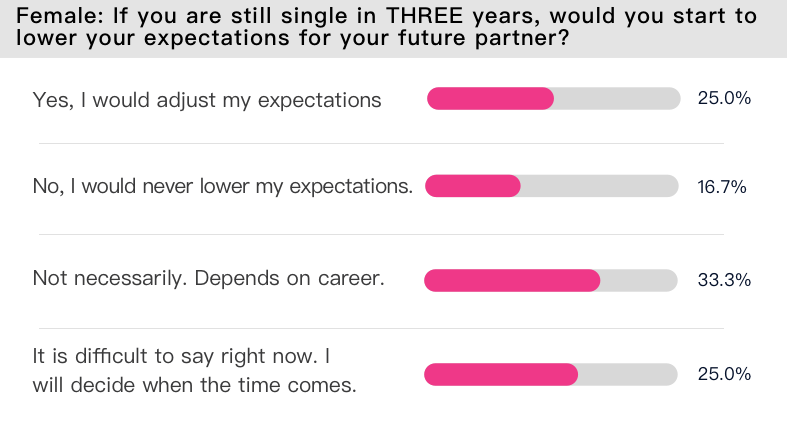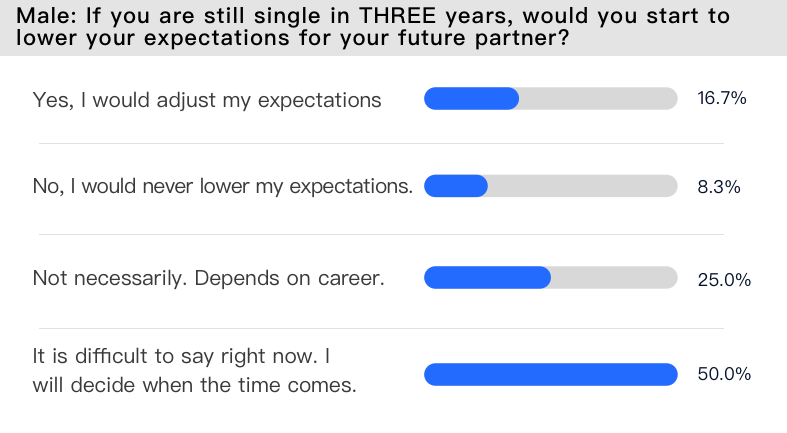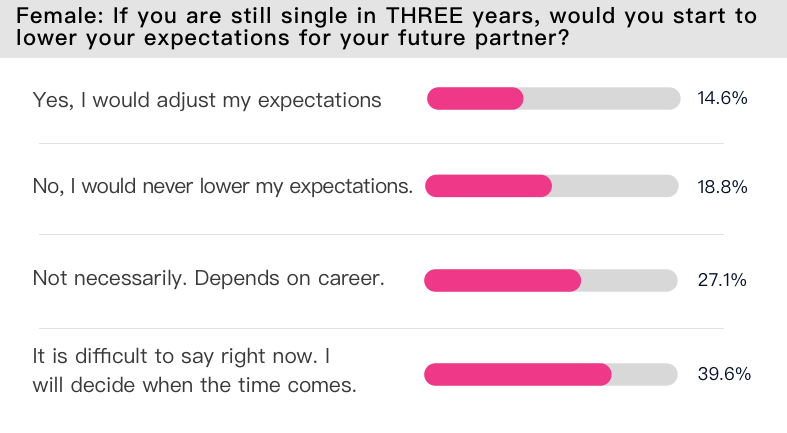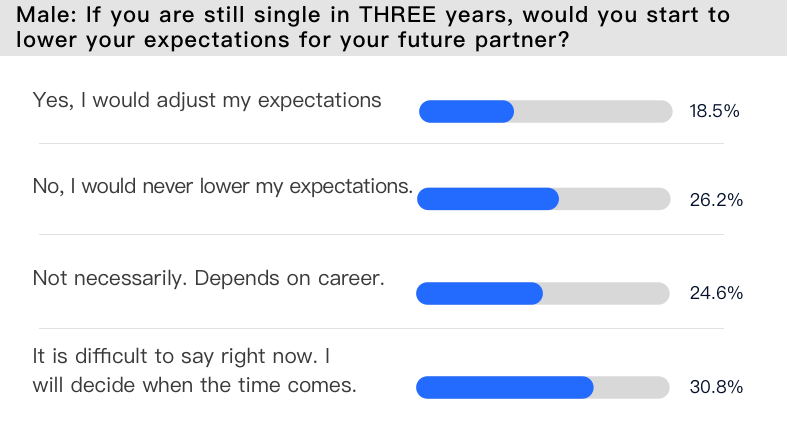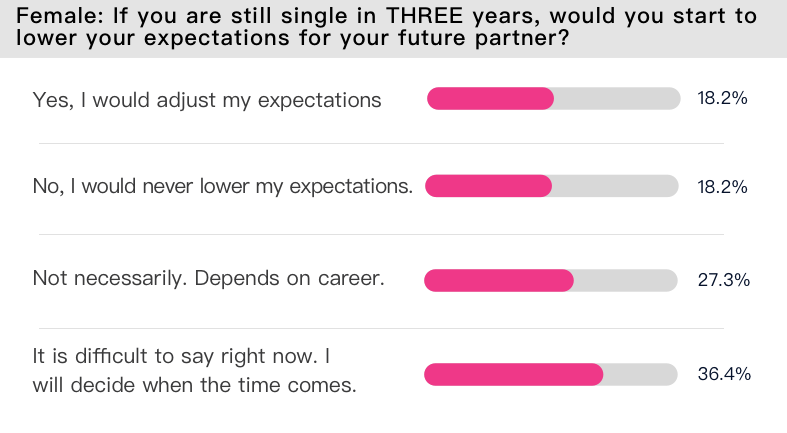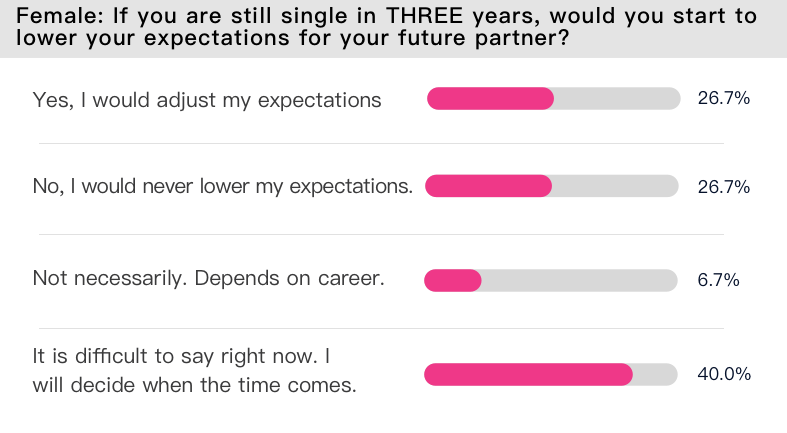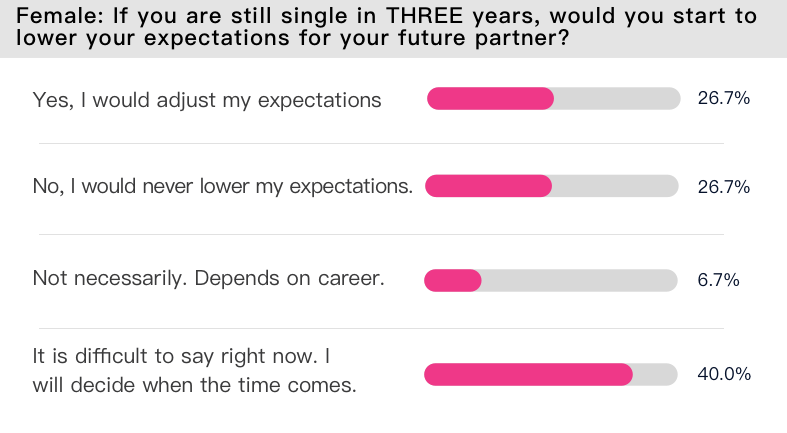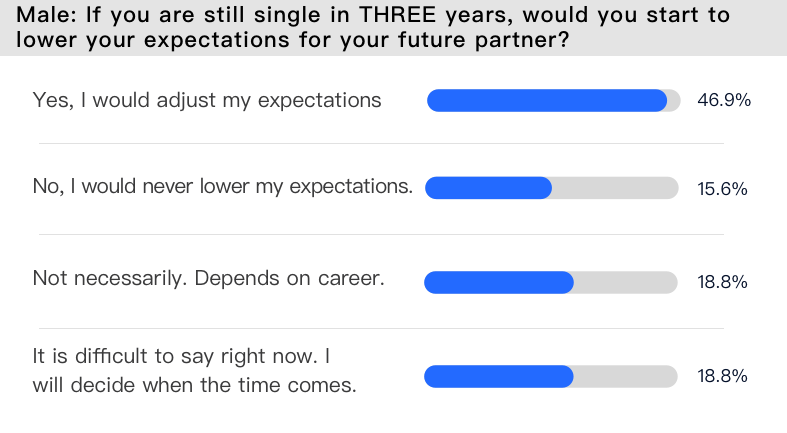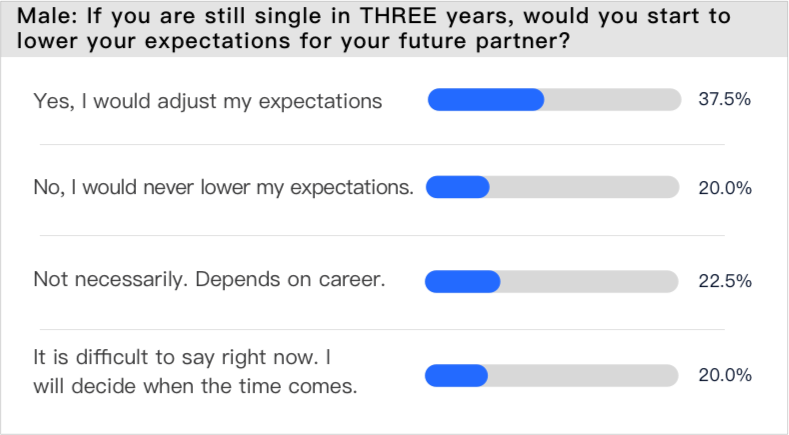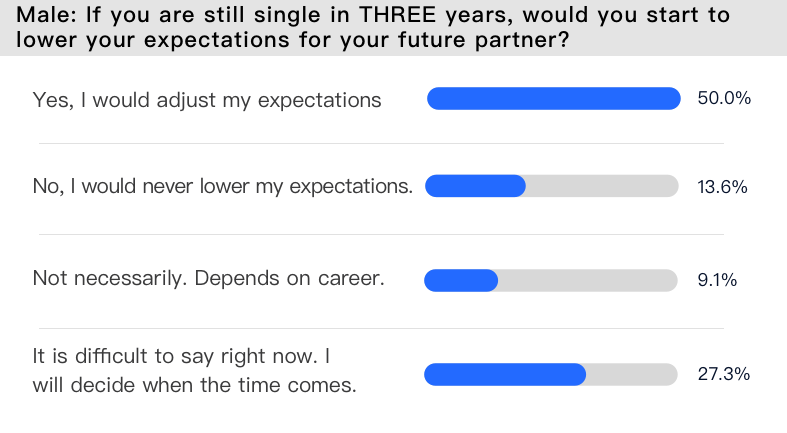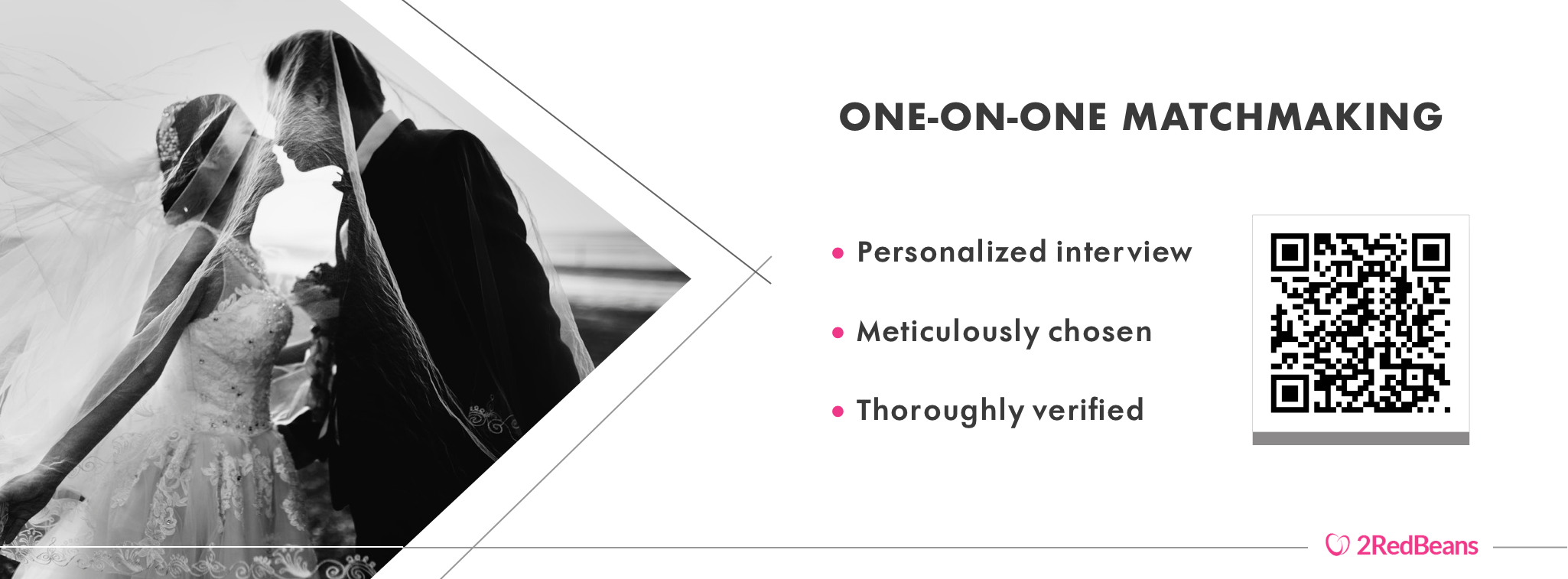If you are still single in three years, would you start to adjust and perhaps, lower your expectations for your future partner?
Our experiences shape our thinking as we grow. Our expectations, needs and wants are constantly remodeled after these experiences. As we grow older each year — it’s already 2018 –, do we raise our expectations as well? More specifically, when it comes to relationships, do we also raise the expectations we have for our future partner, assuming you’re still single of course?
In this week’s survey, we tackled the sensitive topic of age. We wanted to know if expectations of your future partner will change as you mature in three years’ time. And yes, as usual, we want to see the differences between men and women.
Let’s dive right in to the results:
For 18 to 24-year-olds, there is still a decent number who think that it is still difficult to say right now. 50% of males would rather decide when the time comes, whereas the majority of the females (33.3% of them) think that they might even have higher expectations of their future partner if they advance in their career even more. Talking about female power, eh?
Female: 25 – 30
Male: 25 – 30
For men 25 to 30, there is a significant increase in the number of respondents who would never lower their expectations for their future partner. The percentage of female respondents who might have higher expectations of their future partner remains huge, whereas the majority of them chose to take a step back and decide when the time comes.
Female: 31 – 35
Female: 36 – 45
Female: 46 – 55
Male: 31 – 35
Male: 36 – 45
Male: 46 – 55
This is where things start to get slightly more interesting. For those 31 and up, the majority of male respondents will lower their expectations for their future partner as they age. As for the female respondents, the percentage of them who will never lower their expectations for their future partner increased.
Of course, as usual, these results are not representative of the Chinese population whatsoever; they are merely a result of our user survey.
So what?
We can see that as men age, they are more willing to adjust their expectations for their future partner. Career advancement seems to be a key factor when it comes to the 18 to 35-year-old female respondents. In addition, perhaps, women feel that further considerations should be made before making such a decision. Therefore, the majority of them would rather decide when the time comes.
From the results, women have less tolerance for those with less stable careers. This tolerance dwindles with age, perhaps even more so for women, who probably prefer to have a partner who is more ambitious and driven than they are. Their goals and ambitions become the requisites they have for their future partner.
On the other hand, as men advance in their careers (I’m assuming that’s the case as men age), they seem to be more willing to adjust their expectations for their future partners as compared to their female counterparts. So long as their requirements are met, men, perhaps, are more than satisfied. And no, I’m not implying that men are more willing to settle for less!
And maybe that’s why we always think that successful men are able to find their partner more easily than successful women.
We often believe that making ourselves more successful in terms of career, etc, is the key to finding the most suitable partner for ourselves. Yet, in our pursuit of success, we increase our expectations even more, thus making it even more difficult for us to find our ‘suitable’ partner. In reality, there is no ‘perfectly suitable’ person for yourself. What is more important, perhaps, is to find someone who complements you as a person.
We should also know our worth and understand our own value. This does not mean going out there and having unrealistic expectations and demands of others. It simply means that you deserve to be treated the way you treat others and vice versa_._ Change yourself and your future partner will be there to help you grow as a person too. There is no ‘best person for me’ out there. A strong and lasting relationship comes from the consistent effort, such as accepting constructive conflict etc, but more on that later.
Until next time.

